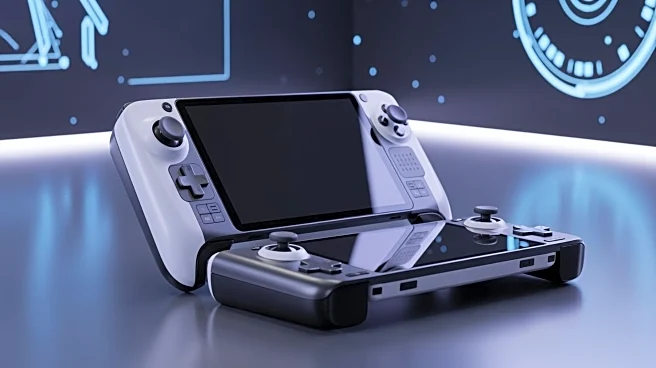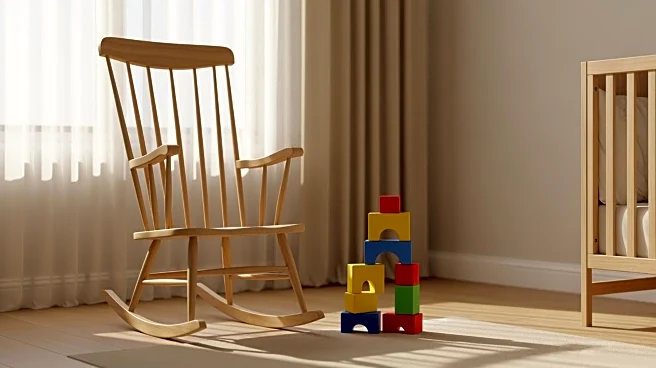What's Happening?
Nintendo has reportedly instructed its manufacturers to produce up to 25 million units of the Switch 2 by the end of March 2026. This move indicates the company's expectation of a strong sales year for the new console. According to Bloomberg, industry
analysts suggest that Nintendo is on track to surpass previous sales projections of 17.6 million units within the console's first fiscal year, potentially reaching a target of 20 million units. The Switch 2 has already achieved significant success, with six million units sold worldwide shortly after its release, making it Nintendo's fastest-selling console globally. The company initially projected sales of around 15 million units in the first year but may revise this figure based on demand during the holiday season.
Why It's Important?
The ambitious production plan for the Switch 2 reflects Nintendo's confidence in the console's market potential. Achieving record first-year sales could significantly bolster Nintendo's position in the gaming industry, enhancing its competitive edge against rivals like Sony and Microsoft. The success of the Switch 2 could lead to increased revenue and market share, benefiting stakeholders and investors. Additionally, the console's popularity may drive further development and investment in gaming technology and software, influencing industry trends and consumer preferences.
What's Next?
As the holiday season approaches, Nintendo will closely monitor demand for the Switch 2, which could lead to adjustments in production targets. The release of popular games like Mario Kart and Donkey Kong Bananza may further boost sales, potentially prompting Nintendo to revise its sales projections upwards. Industry observers will watch for Nintendo's strategic moves to capitalize on the console's success, including potential expansions in game offerings and marketing efforts.
Beyond the Headlines
The Switch 2's success may have broader implications for the gaming industry, including shifts in consumer expectations and technological advancements. Nintendo's focus on innovative gameplay and popular franchises could influence competitors to explore similar strategies, potentially leading to a more dynamic and competitive market landscape.

















